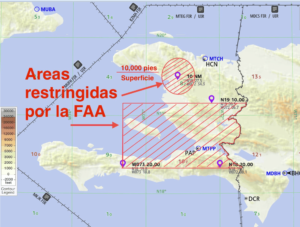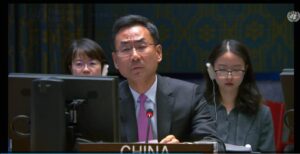
The general director of the Dominican Institute of Civil Aviation (IDAC), Hector Porcellastated that the recent reform to Law 491-06 on Civil Aviation aligns the country’s operational safety regulatory framework according to the criteria established by the International Civil Aviation Organization (ICAO) and the recommendations made by the United States Federal Aviation Administration (FAA).
He explained that the update of the Law constitutes the culminating point of the efforts deployed by the country to preserve category 1 of its civil aviation system in the face of the implications of the IASA audit initiated last year by the FAA to evaluate the levels of compliance with the Dominican aeronautical sector.
 The head of the IDAC praised the joint efforts of President Luis Abinader and the different groups of the National Congress to promote the approval of the reform of the Law, in a process that included the study of the project in committee and the holding of consultations with the participation from different representatives of the sector.
The head of the IDAC praised the joint efforts of President Luis Abinader and the different groups of the National Congress to promote the approval of the reform of the Law, in a process that included the study of the project in committee and the holding of consultations with the participation from different representatives of the sector.
He said that the commitment of the head of state and the congressional authorities reflects a gesture of high patriotic sense, by placing the national interest above party or particular political interests.
“An IASA audit, applied in accordance with ICAO standards, has a schedule and a compliance program, which entails a first visit of 5 working days with the IDAC to make the first evaluation and present some observations; Then a second and final final review meeting is scheduled to verify if the observations from the first meeting were resolved, after which we are notified within 45 days of the results of the audit,” he noted.
He said that the team responsible for the IDAC responded with due efficiency to all the points and questions raised during the evaluation.
He recalled that Civil Aviation Law 491-06 served as the basis in 2007 for the country to recover Category 1 granted by the FAA, after remaining for more than 13 years in Category 3, which prevented commercial aircraft of Dominican registration operate in the territory of the USA.
He highlighted that when category 1 was recovered in 2007, what was adopted as law was practically a replica of US legislation, which facilitated the FAA’s favorable decision, at a time when the number of airlines in the country with ability to fly to cities in the United States, was negligible, reducing the operational safety risks of Dominican aviation to a minimum.
The head of the IDAC indicated that after this process, an adequate maintenance plan was not adopted to ensure that the RD remained updated in terms of regulation, procedures, recruitment and updating of technical personnel and other actions necessary to maintain operational safety in accordance with to international parameters.
Porcella stated that 4 years ago the country was not prepared to pass the test of an FAA audit because the national aviation showed notable delays in its regulations and compliance standards.
“I reaffirm, as I have said before, that the country was not prepared to pass the FAA evaluation neither in 2020, nor in 2021 nor in 2022,” emphasized the general director of IDAC.
He maintained that the effort deployed by the IDAC in the last three years to prepare national technicians, hire the highest level advisors, in order to update aviation standards and regulations and apply new methods to improve aeronautical operations, made it possible to overcome the many weaknesses that the sector showed.





